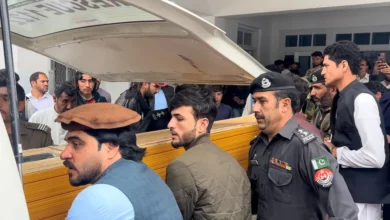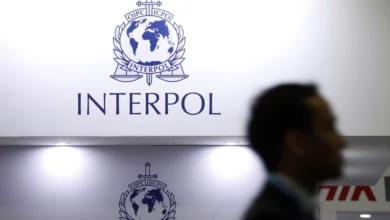A US-based rights organization has urged President Mohamed Morsy to immediately work toward ending sectarian violence by investigating and prosecuting perpetrators.
“Sectarian tensions in Egypt have long been punctuated by outbursts of criminal violence, yet time and again authorities fail to prosecute or punish those responsible,” said Joe Stork, deputy Middle East director at Human Rights Watch. “Putting an end to sectarian violence means prosecuting those responsible and making sure that the outcome is fair.”
The rights group said that following the ousting of the former President Hosni Mubarak in February 2011, at least 12 incidents of serious sectarian violence had erupted, leaving at least 25 people killed, and destroying homes and shops.
Christians form about a 10th of Egypt’s 82 million and they have regularly complained about discrimination, especially regarding places of worship.
Only two of the 12 incidents have resulted in prosecutions, HRW said, but prosecutors referred the cases to Emergency State Security courts, which were notorious for failing to meet minimum due process standards and whose verdicts cannot be appealed.
The report referred to one of the two cases in which prosecutors brought charges. On 21 May, the Emergency State Security Court in the southern city of Minya sentenced 12 Christians to life in prison and acquitted eight Muslim defendants, on charges related to sectarian clashes a year earlier in the nearby towns of Abu Qurqas and Fekria.
The violence left two Muslims dead, several Muslims and Christians wounded, and scores of Christian shops and homes burned.
The organization said other cases were handled with so-called reconciliation meetings, which did not result in justice. The Egyptian Initiative for Personal Rights has documented the use of such meetings over a period of years in areas of Egypt that are still dominated by tribal relations.
“Local or religious leaders conduct the meetings, determine a political settlement and enforce it, sometimes with the assistance of the police. These ‘settlements’ sometimes include instructing families to leave their homes,” HRW said.
Such a technique allows wrongdoers to escape justice, the organization said.
“In one case handled with such a meeting, in January, several hundred Muslim residents torched and looted homes and properties of Christian villagers in Sharbat, a town near Alexandria, following unsourced rumors that a Christian man had images of a Muslim woman on his mobile phone,” the group said.
The attacks damaged six homes and six shops, and lawyers and residents confirmed to the rights group that the police had not pursued five suspects identified in a 28 January police report.
The group said police and religious leaders supervised the reconciliation sessions in February, which resulted in the evacuation of eight Christian families and the sale of their properties, but five families were repatriated thanks to the intervention of other religious personalities.
HRW urged Morsy to reject the ruling and all verdicts handed down by the state security court and to order retrials.
“The new president should ensure a system is in place to speedily review” and halt all verdicts issued after unfair trials, including all verdicts issued by emergency courts, the organization added.




